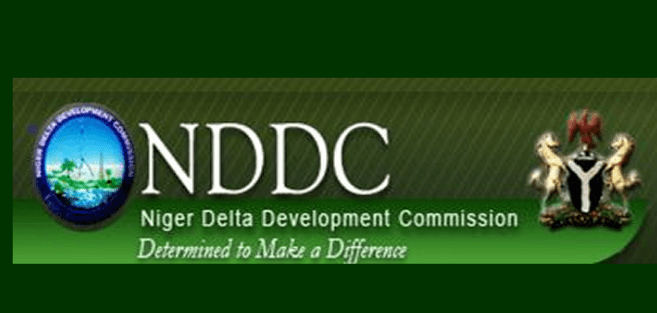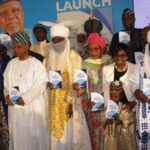Corruption in Nigeria is of Sodom and Gomorrah proportions, but I insist that the thieves among us are a tiny minority.
The vast majority of Nigerians are honest, hardworking people but, as usually happens, it is the bad people, whose activities account for the general misery in the land, who hug the headlines.
Our politicians of the First Republic used to steal hundreds of pounds before they graduated to pilfering thousands.
When the military mounted the saddle, the level changed; it became fashionable to loot the treasury to the tune of millions of Naira without batting an eyelid.
Today, under the somnambulant nose of our Fourth Republic, the fashion is to steal billions without even bothering to cover the tracks.
I am watching the salacious revelations of unprecedented looting at the Niger Delta Development Commission (NDDC) with gut-churning sadness.
Even though a study was recently carried out by Matthew T. Page, a nonresident scholar at the Carnegie Endowment for International Peace, on the taxonomy of corruption in Nigeria, and although the evidence-based study is quite credible, the verdict for 99 percent of Nigerians has to be that they are victims of the minority looters who are holding political power and making such an uproarious mess of it.
“Corruption is the single greatest obstacle preventing Nigeria from achieving its enormous potential.
“It drains billions of dollars a year from the country’s economy, stymies development, and weakens the social contract between the government and its people…
“Corruption is rife across the country’s economic sectors: petroleum, trade, industrial, agricultural, infrastructure, power sector, banking, and environmental.
“Together, these forms of corruption erase billions of dollars from Nigeria’s bottom line and prevent it from realising its great human and economic potential”, argues Page.
“In Nigeria’s security sectors, defense sector and police corruption are destabilising and compounding security challenges in conflict hotspots like the Lake Chad Basin, the Middle Belt, and the Niger Delta.
“Corruption in the judiciary and within anticorruption agencies undermines the country’s already anaemic accountability mechanisms, thereby fuelling corruption across the spectrum….”
The researcher found some truth in the allegation by military deserters that Boko Haram was, more often than not, better equipped than the Nigerian forces, contrary to the claims by the military chiefs that their troops had all they needed to prosecute the war.
One only needs to look at the way Chadian forces routed the terrorists and chased them far into Nigeria to understand that our favourite pastime of corruption has crept into the defence of our territorial integrity.
Yes, corruption pervades the very air we breathe and we have not tackled it with the required level of ruthlessness.
In spite of that, however, let no one generalise the stain.
Nigerian blood also flows in the veins of some people who are the envy of the world.
If you don’t affirm the positive around you, your very existence will be swamped by the loud, negative vibrations buffeting you from various angles.
World heavyweight boxing champion, Anthony Joshua; UFC World Middleweight champion, Israel Adesanya; UFC World Welterweight champion, Kamaru Usman; and many more sportsmen and women are making waves all over the world.
The other day, President Buhari issued a congratulatory message to Professor Charles Egbu, the new Vice-Chancellor of Leeds Trinity University, United Kingdom.
Egbu is the first black person to be appointed to head a ranked university in the UK.
Recently, a Nigerian Ph.D student in Japan, Ikenna Nweke, found a wallet containing a “huge sum of money” and turned it over to the police.
On being offered a percentage of the money as gift as prescribed by the law, he rejected the compensation.
“I rejected those offers because I was raised by a very decent family; I rejected those offers because I’m a Nigerian,” said Nweke.
There are thousands of Nigerians like these achievers who are making waves in their various professions.
The world is not too interested in good news and since we don’t have a shortage of bad news, we are always hugging the wrong headlines.
Back at home, Nigerians are some of the most hardworking people on earth.
A visit to any Lagos bus stop by 4.30am on any working day reveals that economic activities are already on the upswing.
The masses rise early in order to do some honest work to put food on the table.
The major obstacle to the people’s happiness, most times, is the government.
I get visibly upset at negative profiling of Nigerians.
Even if corruption has kayoed any pretence to decent governance, we, the people, are equally victims of the negative activities of the minority looters and other criminals in our midst.
Let no one tar us with the brush of criminality, as Ikenna Nweke memorably warns:
“Here is a message for every Nigerian that should maintain, protect the image of our nation wherever we are.
We are the Nigerians that people know.
When we do something bad abroad it reflects on the image of the nation.
This is a message for non-Nigerians who think that every Nigerian is a criminal.
That is not true. Nigeria is a country of about 200 million people…
There are some criminal elements in Nigeria, and these criminal elements are found in every part of the world.
These criminal elements are just a tiny fraction, they do not represent who we are, they do not speak for us.
They are not a true reflection of who Nigerians are.”

 Join Daily Trust WhatsApp Community For Quick Access To News and Happenings Around You.
Join Daily Trust WhatsApp Community For Quick Access To News and Happenings Around You.


